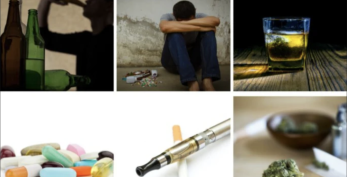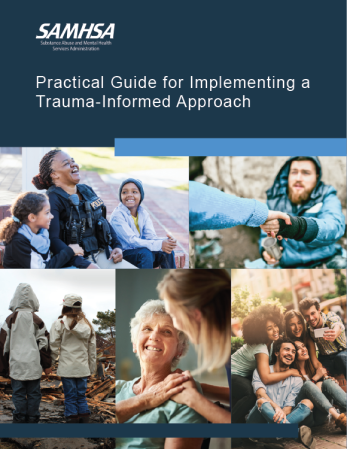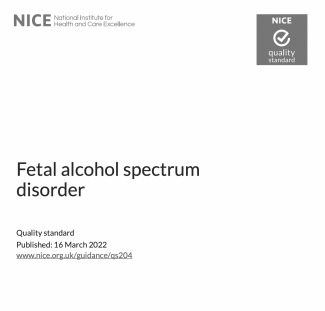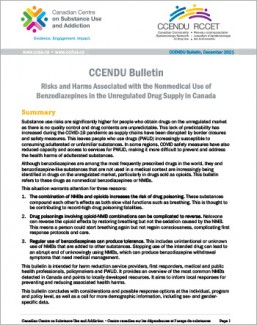Search
Quality Assurance
The application and integration of the best available research, clinical expertise, quality marks and patient preferences to ensure high-quality care in substance use disorders services.
Bi-Monthly Webinar: ISSUP Nigeria Knowledge Update Series (Thirteenth Session)
ISSUP Nigeria would like to invite you to attend their next Bi-Monthly Webinar in the Knowledge Update Series. The Webinar topic will be Beyond Dependence: Alcohol-induced Disorders.
Learning Outcomes:
• Sensitization to the wide range...
Keynote Speakers - WHO & UNODC and ICQ Official Launch, Day 2, Track 1, 08:00-09:00
Presented as part of the Uniting the global community to face the challenge of addiction event, in-person on 13th May, 2022
Presentations:
- Keynote WHO - Dr Vladimir Poznyak MD, PhD
- Keynote UNODC - Giovanna Campello
- ICQ Official Launch...
Drug Policy, Day 1, Track 1, 11:00-12:30
Presented as part of the Uniting the global community to face the challenge of addiction event, in-person on 12th of May,2022
Presentations:
- Advocacy! Making Your Voice Known for Drug Demand Reduction - US. Senator Mattie Hunter
- Develo...
Patient perspectives on depot buprenorphine treatment for opioid addiction – a qualitative interview study
Background
Recently developed buprenorphine depot injections have the potential to reduce risk for diversion and misuse, and to increase adherence with fewer visits for supervised intake. However, it is unclear how patients perceive this...
A qualitative study exploring how young people perceive and experience substance use services in British Columbia, Canada
Background
Substance use among youth (ages 12–24) is troublesome given the increasing risk of harms associated. Even more so, substance use services are largely under utilised among youth, most only accessing support when in crisis. Few...
UNODC promotes the dialogue on drug demand reduction across Central Asia at ISSUP Abu Dhabi 2022 Conference
Within the framework of UNODC global project GLOJ71”Treating drug dependence and its health consequences: Treatnet II” UNODC ROCA in collaboration with Prevention, Treatment and Rehabilitation Section (PTRS) HQ supported participation of 19...
Introduction of new methods and tools for drug use disorders diagnostics and treatment discussed in Kazakhstan
On April 15, 2022, the UNODC Regional Office for Central Asia in collaboration with the Republican Scientific and Practical Center for Mental Health held a “National Round Table Discussion on the application of new methods and tools of drug...
Introduction of new methods and tools for drug use disorders diagnostics and treatment discussed in Tajikistan
On 8 April 2022 UNODC conducted a national round table meeting on the introduction of new methods and tools for drug use disorders diagnostics and treatment in Dushanbe, Tajikistan.
The event brought together some 20 experts from the...
National Round Table Discussion on application of new methods and tools of drug use disorders diagnostics and treatment in Uzbekistan
On 25 March 2022 the UNODC Regional Office for Central Asia held a National Round Table Discussion on application of new methods and tools of drug use disorders’ diagnostics and treatment in Tashkent, Uzbekistan. The meeting was attended by...
Fetal alcohol spectrum disorder - Quality standard
Latest quality standard published sets out how health and care services can improve the diagnosis, assessment, and prevention of foetal alcohol spectrum disorder (FASD).
The quality standard highlights five key areas for improvement:
- ...
HealthCare educational differences in pain management, adverse childhood experiences and their relationship to substance use disorder education
The Ohio Attorney General selected experts from a number of academic fields to the Scientific Committee on Opioid Prevention and Education (SCOPE) to help the State of Ohio in tackling the opioid crisis in the United States. The focus of...
The prevalence of people who inject drugs among those with HIV late presentation: a meta-analysis
Early detection of Acquired Immune Deficiency Syndrome allows infected people to use prophylaxis against opportunistic infections and beginning immediate treatment for secondary complications. People who receive treatment benefit from...
The prevalence and pattern of cannabis use among patients attending a methadone treatment clinic in Nairobi, Kenya
Cannabis is the most widely used illegal substance in the world, with a global prevalence of 4% among people aged 15 to 64 years and a recent trend of growing use. Cannabis usage can have negative health consequences, such as impaired...
Staff preferences towards electronic data collection from a national take-home naloxone program: a cross-sectional study
In Norway, overdose mortality is over 260 per year, with opioids being implicated in the majority of cases. In 2014, the Norwegian government announced a government-funded nationwide overdose prevention initiative in response to the country...
Risks and Harms Associated with the Nonmedical Use of Benzodiazepines in the Unregulated Drug Supply in Canada
Summary
Substance use risks are significantly higher for people who obtain drugs on the unregulated market as there is no quality control and drug contents are unpredictable. This lack of predictability has increased during the COVID-19...
Strong commitment in Pakistan towards quality assurance in line with the UNODC-WHO International Standards for the Treatment of Drug Use Disorders
UNODC Pakistan, together with support from the Ministry of Narcotics, the Ministry of National Health Services Regulation and Coordination, the UNODC Prevention, Treatment and Rehabilitation Section and generous funding support from the US...
The Adverse Childhood Experiences Concept (ACE) in a Research Sample of Imprisoned Children of Addicted Parents
INTRODUCTION
The ACE (Adverse Childhood Experiences) concept is based on the results of an American population-based cohort study published in the American Journal of Preventive Medicine in 1998. ACE is classified into three groups: abuse...
Client’s Characterization in the Community Treatment Approach: Methodological Foundations and Evidence
BACKGROUND: The identity and social representation of people linked to drugs depend on their interaction with the system that collects and analyses the critical data used to describe it. AIM: The aim of this study is to see if by adopting a...
Defining and implementing evidence-based practice: Reading list
Professionalization and Strengthening of the Drug Demand Reduction Workforce.
Chaired by Livia Edegger, Deputy Director of the International Society of Substance Use Professionals (ISSUP), the specialist in this panel spoke about the importance of creating and strengthening the workface in drug demand reduction...
Share the Knowledge: ISSUP members can post in the Knowledge Share – Sign in or become a member










